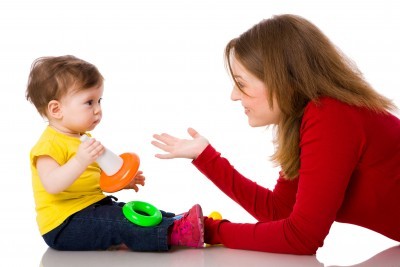The Child Study Centre at NYU Medical Centre states that "from the first day of life to the first day in kindergarten, a child grows at a phenomenal pace that is unequalled at any other time of life. It is during these years that the brain undergoes its most dramatic growth. Language blossoms, basic motor abilities advance, thinking starts to become more complex..." Studies such as this highlight the importance of encouraging your children to start talking and expressing themselves during these formative years.
As a parent, I have lived the frustration of my children when they couldn't make themselves understood. Both my husband and father are engineers and our 7-year-old son has inherited a passion for all things technical. When he was a toddler, I remember going to a kids' birthday party and while all the little ones were entranced by the party clown, my son was focused on the mechanism of a high tech child-proof gate in the garden. Weeks later he was still thinking about that gate and tried to explain it to me. I had no idea what he was talking about and we shared tears of frustration before I worked it out.
Helping children develop their language supports their ability to communicate and express their feelings and better understand yours. Language development also guides them to start thinking about the world around them, solving problems and developing better relationships with friends and family. Learning to use and understand language is the first vital step towards literacy, providing the basis for learning to read and write.
So what can we parents do to encourage our children's speech and language development?
Raising Children (a partnership of leading Australian early childhood organisations) says the most important advice is to talk together frequently and naturally and recommends the following:
• Talk to your baby, beginning in her first year. Assume she is talking back to you when she makes sounds and babbles, and even when she is just paying attention to you. When you finish talking, give her a turn and wait for her to respond. When she starts babbling, babble back with similar sounds. You will probably find that she babbles back to you and this keeps the talking going.
• Respond to gestures and words. As your baby grows up and starts to use gestures and words, respond to his attempts to communicate. For example, if your child shakes his head, treat that behavior as if he is saying "no." If he points to a toy, respond as if your child is saying, "Can I have that?" or "I like that."
• Talk about what is happening. Talk to your baby even if she doesn't understand -- she soon will. Talk about things that make sense to her, but at the same time remember to use lots of different words. As your baby becomes a toddler, continue to talk to her -- tell her the things that you are doing, and talk about the things that she is doing.
• Introduce new words. It is important for children to be continually exposed to lots of different words in lots of different contexts. This helps them learn the meaning and function of words in their world.
• Share books with your baby and continue to as he grows. Talk about the pictures. Use a variety of books, and link what is in the book to what is happening in your child's life. Books with interesting pictures are a great focus for talking.
• Follow your child's lead in conversations. If she initiates a conversation through talking, gesture or behavior, respond to it, making sure you stick to the topic your child started.
• Repeat and build on what your child says. For example, if he says, "Apple," you can say, "You want an apple. You want a red apple. I want a red apple too. Let's have a red apple together."
• Encourage your child to talk about things in the past and future. At the end of the day, talk about plans for the next day -- for example, making the weekly shopping list together or deciding what to take on a visit to grandma. When you come home from a shared outing, talk about it.

